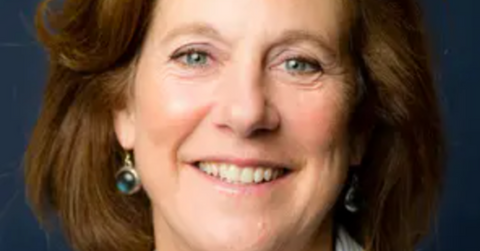It’s no secret that women in the United States are actively breaking boundaries and shattering glass ceilings left and right in various sectors. And while we’re making many historical gains, the fact still remains that in 2014, according to the U.S. Census Bureau, we make 78 cents for every dollar a man earns. That number changes if you consider calculations from the Bureau of Labor statistics who calculate based on weekly earnings and say that when we only consider women and men who work a full time 40 hour week, women earn 88% of male earnings. So the one question remains: who’s really winning in the work place?
Emily Viner, the Vice President of Agency Management and Leadership Development at The Guardian Life Insurance Company of America, believes it is necessary for a work environment to be gender-balanced so that everyone benefits. For the last 17 years, Emily has worked diligently to put in place various initiatives at Guardian Life to ensure diversity within the financial and insurance industries.
“As a financial services organization, we want to support all different types of clients,” said Emily. “There is clearly a wealth transference taking place in this country, and ethnic, gender, and age diversity needs to happen – especially among millennials as they look to assist their parents in estate planning.”
Her Agenda had the opportunity to speak with Emily about her amazing career, her life as a wife and mother, and why it is absolutely necessary for women to be encouraged to take leadership roles in the workplace.
Her Agenda: Do you recall when you first became passionate about becoming an advocate for diversity? Growing up, who are some women (or men) that inspired you to go into your particular career field, or to be a leader?
Emily Viner: My mother became a widow at 42, and my father left behind no insurance nor planning of his estate. It was at that moment I knew I needed to become smarter about finances, and planning for the future. About 10-12 years ago, I was asked to establish a women’s initiative at Guardian, but was very hesitant because typically they are the first things to get cut as a line item on a company’s budget. But upon reading an article that said women between 19-21 felt that they knew less about financial services than their male counterparts, I knew that I had to give women at Guardian the opportunity to learn, grow and thrive in a way that came naturally to men. It also empowered me to leave a legacy for my two daughters.
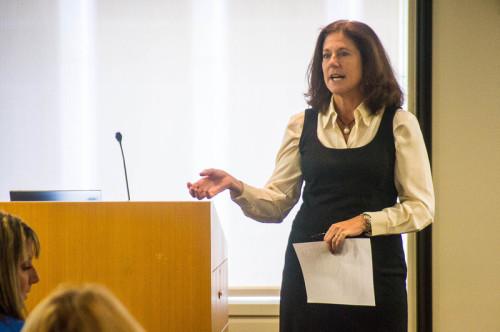
Her Agenda: What was the most challenging decision you’ve ever had to make as a leader? What lessons did you learn from that moment?
EV: There have been so many, but learning to deal with confrontation and preparing for it. Women bring so much emotion to everything but it can hurt us in confrontation. Take the emotion timeout, and prepare logically for discussion. I’m emotional and highly reactive, so I’ve needed to figure out those “hot buttons” of mine, work through them and be productive. Always remember, the same things that can be admired about you can also be your pitfall.
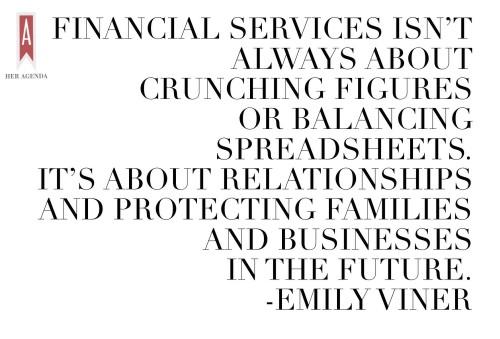
Her Agenda: In climbing the corporate ladder, how easy (or difficult) has it become to achieve work-life balance? Do you think it’s possible for women to “have it all”?
EV: First, nobody can have it all. No one is going to hand you work-life balance, so you’re going to have to be an architect. When I arrived to Guardian 17 years ago (they wanted to hire her 19 years ago but she said no because of the well-being of her children), I really wanted to join the company, but I needed to ensure that certain things would happen. You have to come to the table ready to negotiate — letting your employer know that they will get everything they need and more from you as an employee, but you need to detail [your expectations for] the employer to create work-life balance.
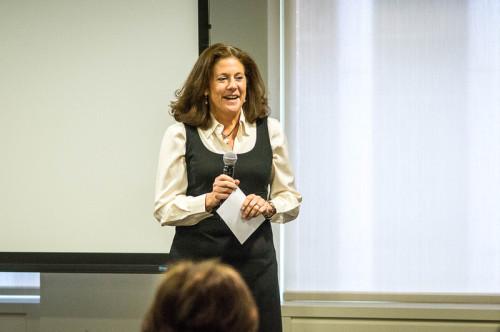
Her Agenda: As the current leader of the Gender Balanced Initiative for The Guardian, what are some important things millennials should know (specifically women) about beginning a career in finance, and wanting to pursue leadership positions? How is The Guardian preparing its millennial women employees to be future leaders in marketing and finance?
EV: First, we had to remember why women are good for the financial services industry (it’s because we’re great negotiators) and secondly, we need to provide them with the tools they need to excel in the field. Financial services isn’t always about crunching figures or balancing spreadsheets. It’s about relationships and protecting families and businesses in the future. Relationship building in wealth management far outweighs the numbers.
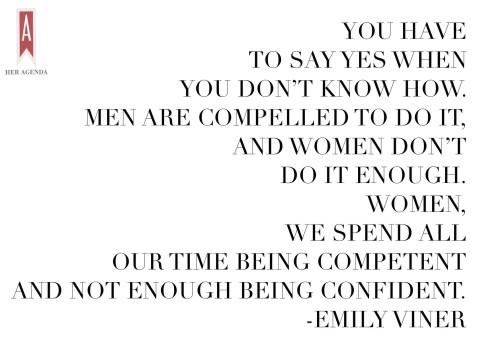
Currently, Guardian works with the women we do have and hold them up as role models. Personally, many of the mentees that I’ve gained at Guardian have come from relationships that I’ve built over the years. The need for mentoring in our organization became more apparent, so we started a mentoring program in June. We also held ‘Office Hours’ with Samantha Clark, Vice President of Career Development at the Alliance Advisory Group, and we’re building our platform to honor women of Guardian’s past in order to encourage and empower women of the present and future. It is my goal to build an environment for women to succeed, and to impart gender intelligence to shift the company culture.
[Editor’s note: This feature was published on October 8, 2014.]

